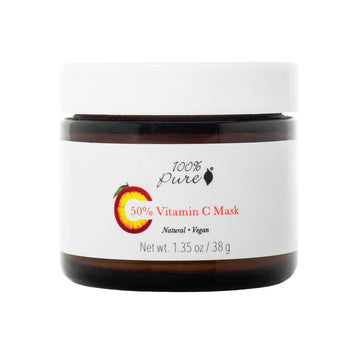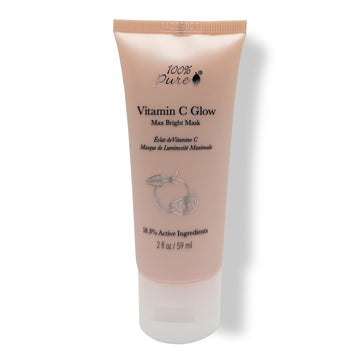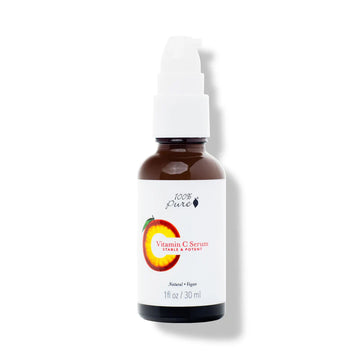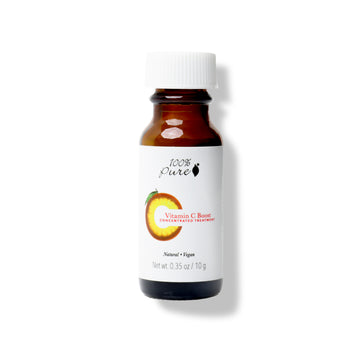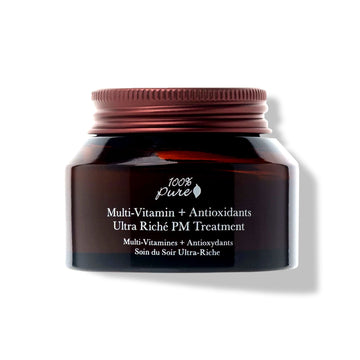Let’s discover whether Vitamin C can give you clear and glowing skin!
Written by: 100% PURE®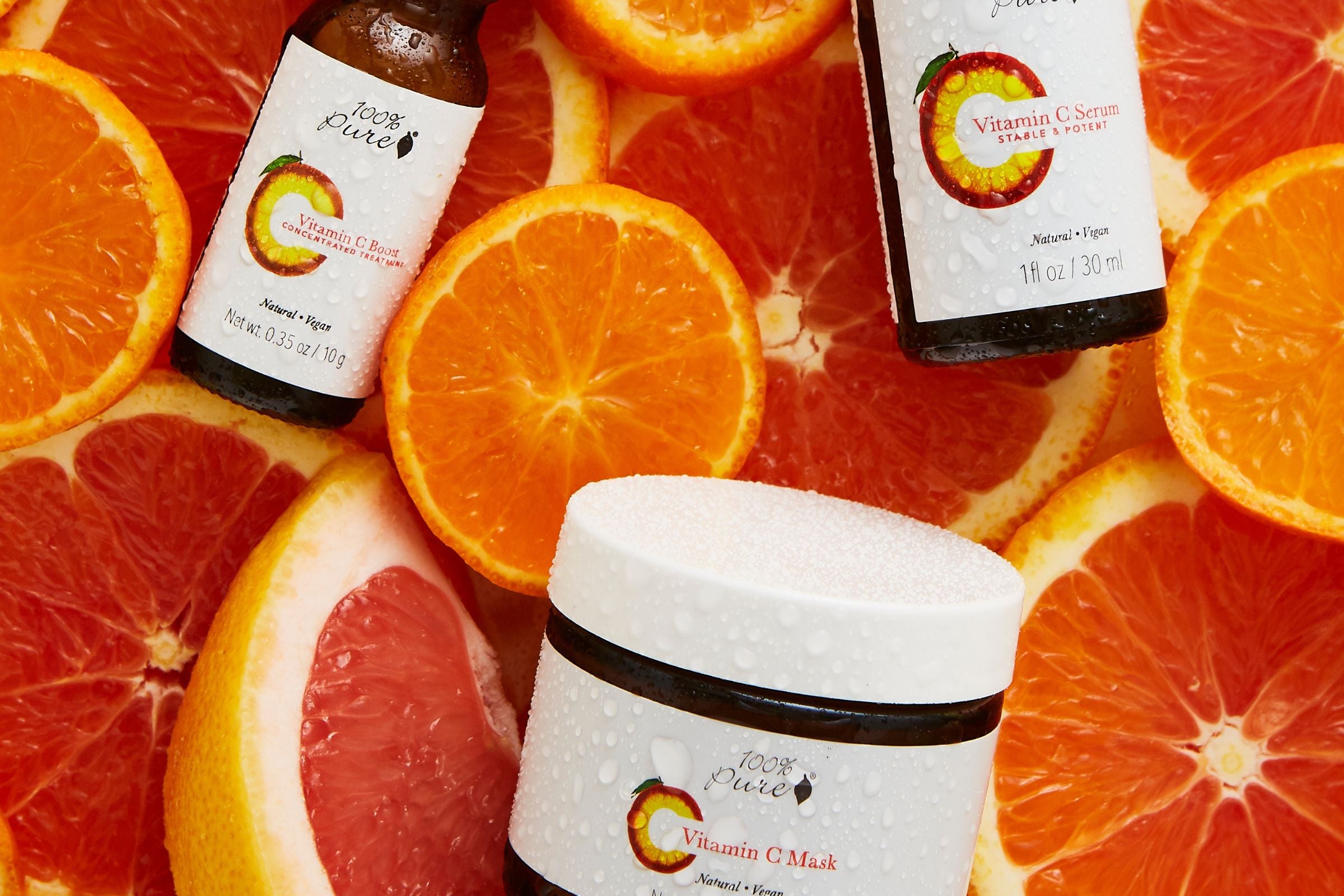
Treating acne can be exhausting as there is no one way that it can be fixed entirely. You have to try a mix of various lotions and potions to see what works best for your skin. The cause of acne can also range from an allergic reaction to hormonal imbalance. On the quest to get rid of your acne, you will learn a lot about skincare ingredients and which ones work best for your skin.
One such skincare ingredient that has been getting a lot of attention for treating acne much faster is Vitamin C. We don’t produce Vitamin C naturally, this is why it's best to source it from plants. In this blog post, we'll see if Vitamin C can truly eradicate acne from the skin.
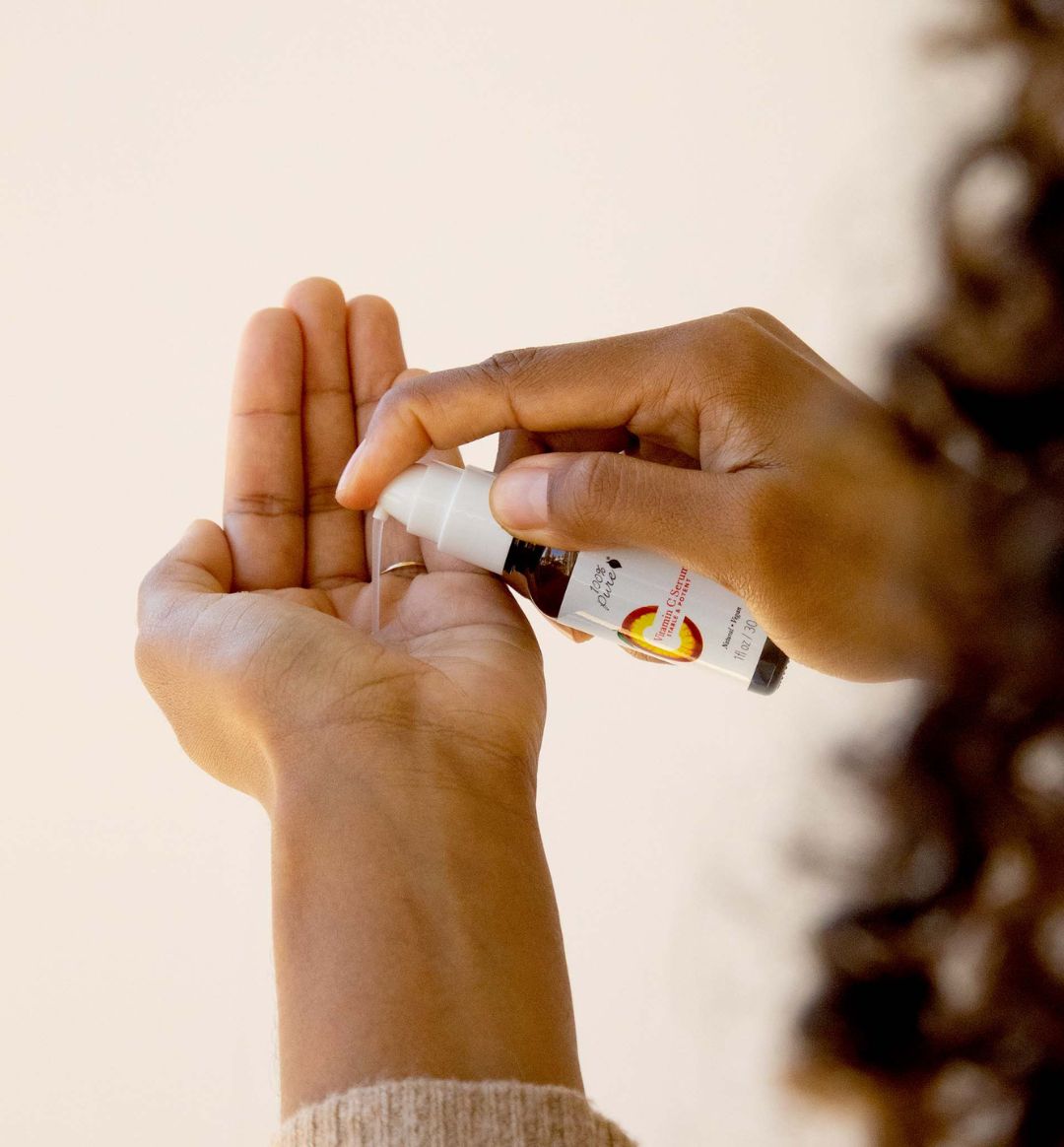
Vitamin C treating a skin ailment is not a new discovery. In the 1930s, it emerged as an effective remedy for treating scurvy. Spots on the skin, pain in joints, and bleeding gums were all caused by scurvy.
There are bacteria naturally present on every skin. The cleaner your skin, the less chance that bacteria have of causing any trouble. However, when dirt, sebum, and oil get trapped in the skin the bacteria get an environment in which it fully thrives. It then triggers an inflammatory reaction in the skin and that's how acne surfaces. Many causes can throw off the balance of the skin like:
- Hormonal Issues
- Malnutrition
- Extreme Weather
- High Pollution
- Harsh UV Rays
- Medication Side-effect
- Genetics
The reason why there is one fixed cure for acne is that it has so many different types. Cysts, pimples, nodules, bumps, whiteheads, and puss-filled zits, all fall under acne.
Blackheads on the T-zone are the most common acne problem that many people go through. The mixture of clogged oil and dead skin cells oxidizes over time and becomes black. In whiteheads, the mixture is more strongly trapped inside the skin and is more painful to take out.
Cysts and nodules are a sign that acne needs immediate attention from a dermatologist. It's best to get this kind of acne treated by a professional for this.
Newsletter Subscribe
for more blog updates and exclusive discounts
Vitamin C is a powerful multi-purpose nutrient. It is an antioxidant and that makes it a winning skincare ingredient. It protects the skin from damage caused by environmental pollutants and free radicals. In addition to this, it is also a great anti-inflammatory agent. Due to this, it is great for skin conditions in which skin gets triggered easily like psoriasis and dermatitis.
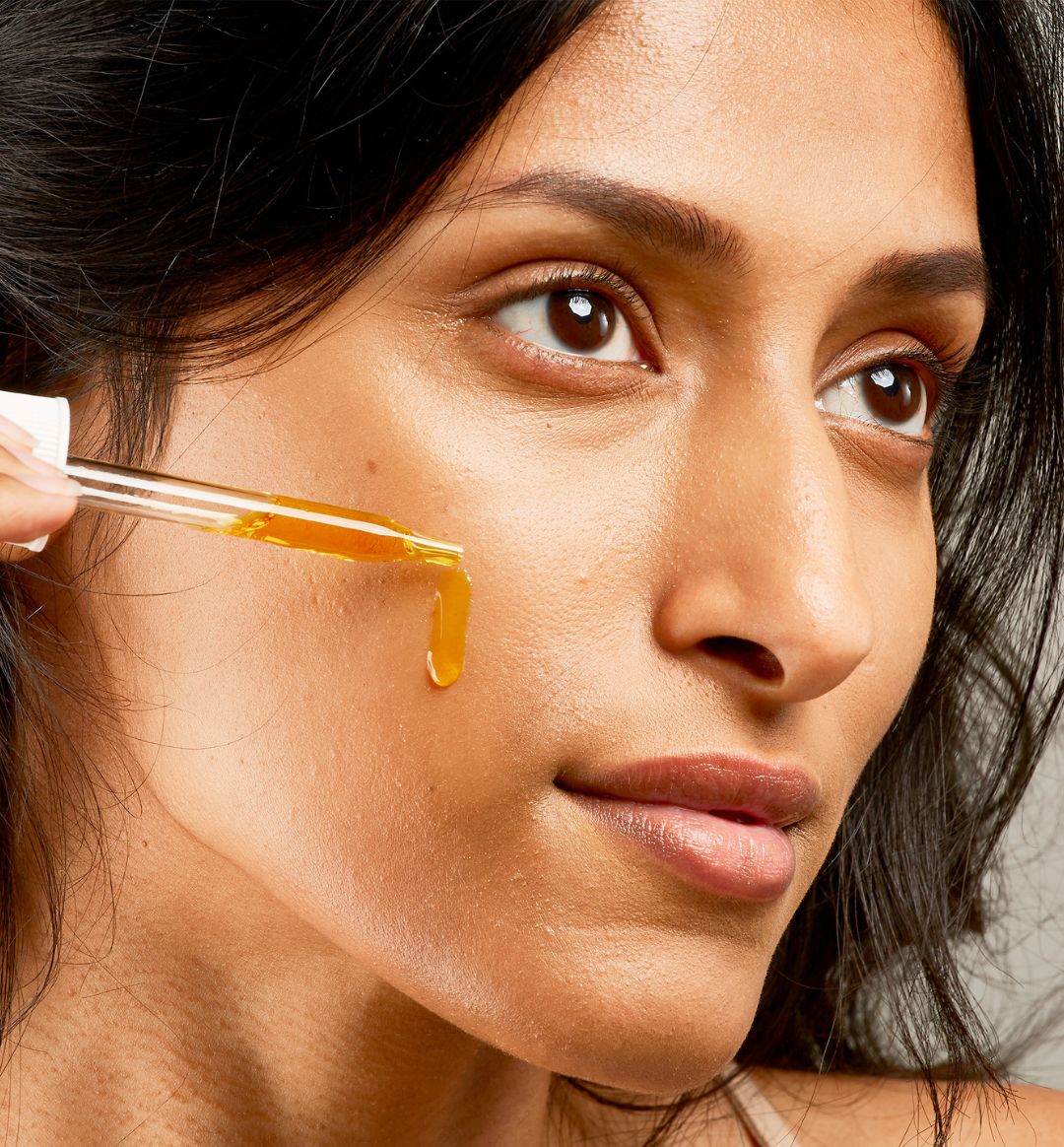
As Vitamin C is a superstar ingredient, you can find it in almost any skincare product that you’d like be it foam cleansers, masks, serums, etc. This is also what makes it incredibly easy to incorporate into your skincare routine. You can pick the product according to your problem and then use it as recommended.
Our Vitamin C Mask is a skin brightening treatment concentrated with two forms of vitamin C: Sodium Ascorbate and Calcium Ascorbate. Designed to support collagen and elastin production, this super-concentrated mask comes packed with additional brightening power from papain and bromelain fruit enzymes. But if you’re looking for that instant red carpet glow, we recommend a supercharged mask like our 18.3% Active Ingredients Vitamin C Glow Max Bright Mask. Made with wrinkle-fighting Bakuchiol, CoQ10, Vitamin E, and other illuminating nutrients, this mask works to transform your complexion from the first application and with continued improvement in skin health and vibrancy with each use.
Our natural Vitamin C Serum employs ultra-stable Magnesium Ascorbyl Phosphate, combining it with soothing aloe gel to deliver a drink of hydration to thirsty skin. It promotes collagen and elastin production while fighting oxidative damage and discoloration with fellow antioxidant vitamin E.
Our Vitamin C Boost is an ultra-concentrated treatment with just two ingredients: vitamin C and hyaluronic acid. In this blend, you’ll find Sodium Ascorbate, Ascorbic Acid, and Calcium Ascorbate for a triple punch of our favorite vitamin. Hyaluronic acid makes this one of our more hydrating vitamin C products.
Our Multi-Vitamin + Antioxidants PM Serum is your nighttime backup to your daytime vitamin C serum. Working with the same potent yet stable base as our signature C serum, this anti-aging superstar is boosted with 10% Magnesium Ascorbyl Phosphate (vitamin C).
Our Multi-Vitamin + Antioxidants PM Treatment is an antioxidant powerhouse, formulated with Sodium Ascorbyl Phosphate for gentle nighttime rejuvenation. It works on a cellular level to address collagen depletion while promoting firm, plump, and youthful-looking skin.
If Vitamin C is not the right ingredient for your skin then still there are multiple options for you to treat acne. As soon as you will get the cause of your acne right, it will become easier for you to find its cure. Some popular acne treatments that can cure your completely are the following:
- Topical Medication
- Tea Tree Oil
- Azelaic Acid and Salicylic Acid
- Deep Facial Treatments
- Light Therapy
- Healthy Diet
Vitamin C is a key player in the skin care industry right now but that doesn't mean it can’t have any side effects. There is a common misconception that it works well for everyone. Since it’s acidic in nature, you need to first consult a dermatologist to see if it will work for you.
Doing a patch test is also a must before applying a generous amount of Vitamin C product to your face. If it suits your skin, then there is a higher possibility that it will decrease your acne-related issues to a great extent.
What is Vitamin C, and how does it work on acne?
Vitamin C is a potent antioxidant that plays a crucial role in skin health. It works on acne by reducing inflammation, boosting skin’s healing process, and promoting collagen production. Its antioxidant properties help fight free radicals and damage caused by UV exposure. Vitamin C also has a mild exfoliating effect that can help to unclog pores and prevent new acne formations. However, it's not a direct acne treatment like salicylic acid or benzoyl peroxide.
Can Vitamin C help in reducing acne scars and hyperpigmentation?
Yes, Vitamin C is highly effective in reducing acne scars and hyperpigmentation. It inhibits melanin production, which can help fade dark spots and lead to a more even-toned complexion. Its role in collagen synthesis also aids in the natural regeneration process of the skin, helping to repair acne scars over time.
Is Vitamin C suitable for all skin types prone to acne?
Vitamin C is generally suitable for most skin types, including those prone to acne. However, individuals with extremely sensitive or severely acne-prone skin should proceed cautiously. It’s advisable to start with a lower concentration of Vitamin C and gradually increase it. Patch testing is recommended to ensure that the product does not cause irritation.
How should Vitamin C be incorporated into an acne skincare routine?
Vitamin C can be incorporated into an acne skincare routine as a serum applied after cleansing and before moisturizing. For daytime use, it’s essential to follow up with sunscreen, as Vitamin C can increase sun sensitivity. It can be used in conjunction with other acne treatments, but spacing out the application of different treatments (like using Vitamin C in the morning and acne treatments at night) is often recommended to avoid irritation.
How long does it take to see results from using Vitamin C for acne?
The time frame to see results from using Vitamin C for acne can vary, typically ranging from a few weeks to a few months. Consistency is key to the best results. Improvements in skin texture and brightness can be seen relatively quickly, while changes in acne scars and hyperpigmentation may take longer.
- Tags: December-2023, Skin Care, skincare
We carefully hand-select products based on strict purity standards, and only recommend products we feel meet this criteria. 100% PURE™ may earn a small commission for products purchased through affiliate links.
The information in this article is for educational use, and not intended to substitute professional medical advice, diagnosis, or treatment and should not be used as such.













